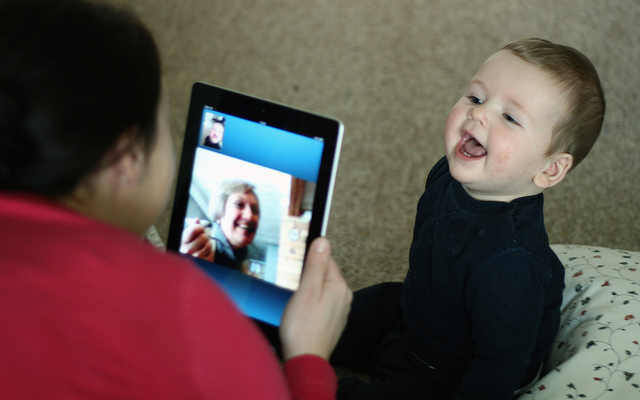Raising kids in the digital age is a tough job. It can be difficult to parent around technology and social media. You don’t want screens to dominate your child’s life, and that’s easier to avoid when they don’t rule your life. When parents are able to balance their use of media with other activities, kids are likely to do the same. And helping your kids find balance is crucial if you want them to make good judgements about the things they encounter on social media and the rest of the Web.
Here are five steps you can take as a parent to help your kids find balance in a digital world:
Be present. Model thoughtful use of digital media and technology. When you’re together, be together. Institute device-free dinners and family time and prioritize outdoor play and social activities, making sure kids know that everyone participates and nobody competes with a screen for attention.
Be a critical thinker. Demonstrate a thoughtful and evaluative (but not cynical) approach to what you are learning via social media. Time away from the Internet can give kids perspective and help them practice perspective-taking — increasing their critical thinking, empathy, emotional literacy, resilience, and other positive psychology skills that can help them make better choices about what they read, believe, and do online. Teach your child how to examine information they find on the Web and how to recognize Internet sites that are unreliable reporters and not based in fact. And remember critical thinking doesn’t only apply to the news — make sure your tweens and teens are aware of the “highlight reel effect.”
Inspire a love of learning. One of the most incredible benefits of living in the digital world is the vast amount of information right at our fingertips. Take advantage of the availability of information and encourage your kids to do so as well (with their critical thinking caps on). Help them to aspire to learn but not always feel that they need to be an expert. Let them know that it’s OK to try out new things and expand your interests.
Less regulation, more demonstration. It’s not what you say it’s what you do. Set few rules, focus on demonstrating better decision-making. Make sure your kids see you stepping away from the screen and enjoying life. Rather than hard and fast rules, you should aim for open discussions during which you share your concerns and listen to what they want and need or may be concerned about themselves. When you are able to focus less on limit-setting with digital media and more on engaging in other activities with the kids, you’re more likely to succeed in helping them enjoy a more balanced life.
Encourage adventure. Help your kids to be open to new experiences. When you see something that you’ve never seen before, share it with them. Order something you’ve never eaten at a restaurant or take lessons for an activity that you have never attempted. If you want to go to the library or a museum, do it, but it’s more than okay to take advantage of the fact that you can visit these places virtually. Follow people with new and different points of view on Instagram. Sit down with your kids and explore parts of the country that you’d like to visit via YouTube videos to encourage an interest in traveling.
Learn more about what it means to have a healthy Play Diet and why we recommend a respectful approach to limit-setting. Have a question about parenting in the digital age? Ask Dr. Kulman! Leave a comment below or come talk to us on Facebook!
Featured image: Flickr user Petras Gagilas




